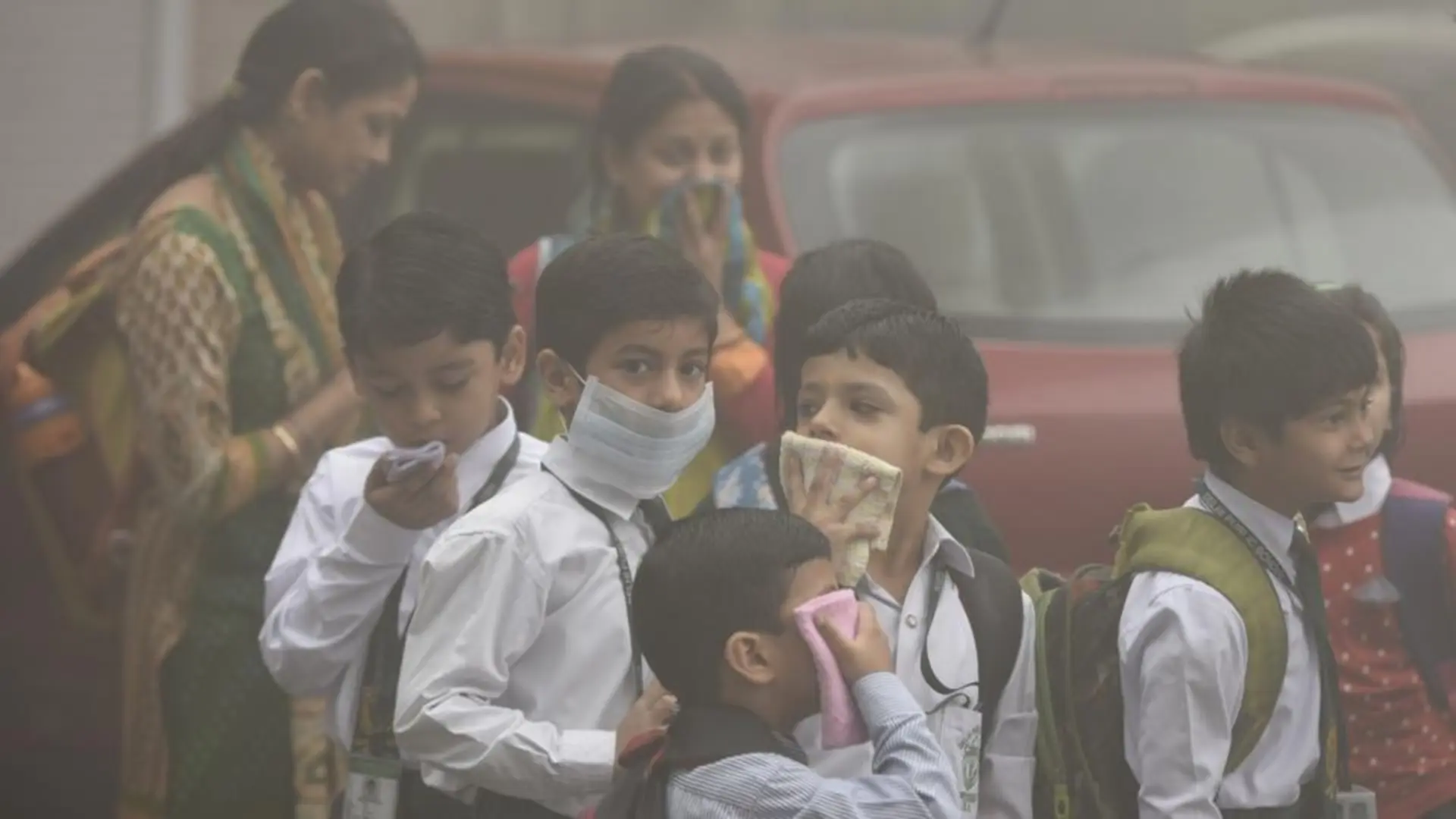Delhi woke up to dangerously high air pollution levels on Thursday, with thick smog and a “severe” Air Quality Index (AQI) blanketing the city. On Wednesday, the AQI reached an alarming 454, marking the worst pollution levels of the season so far. As the national capital faces this ongoing crisis, residents are left wondering whether the government will enforce more stringent measures, including Stage 3 of the Graded Response Action Plan (GRAP), to tackle the worsening air quality.
On Wednesday, the AQI in several parts of Delhi soared to over 400, categorized as “severe.” Areas like Aya Nagar, Ashok Vihar, and Wazirpur recorded some of the worst air quality readings, with the AQI reaching as high as 454—well into the “severe plus” range. This marked the first time this season that Delhi’s air quality has crossed into the “severe” category, causing concern for both public health and daily life.
Adding to the alarm, a dense fog blanketed the entire National Capital Region (NCR), significantly reducing visibility and trapping pollutants near the ground. Experts have noted that this is an “episodic event,” but the timing of the fog—coinciding with Delhi’s typical winter pollution spike—has compounded the issue.
Stage 3 of Grap, typically introduced on “severe” air quality days, enforces a ban on construction and demolition, allows states to suspend in-person classes for students up to Class 5, and stresses the need for enhanced public transportation.
Delhi’s 24-hour AQI
Delhi’s 24-hour AQI, recorded at 4pm every day, stood at 418, up from 334 the previous day.
The CAQM, however, said owing to stronger winds, the pollutant concentration is expected to start showing a declining trend on Thursday onwards and the AQI is likely to move back to the “very poor” category.
GRAP Be Imposed Soon?
As air quality worsens, the question on everyone’s mind is whether the Commission for Air Quality Management (CAQM) will activate Stage 3 of the Graded Response Action Plan (GRAP). This stage includes strict measures such as halting construction activities, shutting down primary schools, and limiting industrial activity.
Although Stage 3 has not yet been triggered, the increasing AQI levels and predictions of more fog in the coming days suggest that Delhi may soon face tighter restrictions.
“After a comprehensive review, the sub-committee decided to closely monitor the situation before implementing Stage-3 of GRAP and will reassess the status on Thursday,” the CAQM said in a post on X.
In another post on the microblogging platform, the CAQM said its sub-committee noted the steep rise in Delhi’s AQI owing to this “episodic event” since morning.
On Wednesday, the national capital experienced its first dense fog and lowest daytime temperature of the season, trapping pollutants.
The maximum temperature in Delhi (Safdarjung) dropped from 32.8 degrees Celsius on Tuesday to 27.8 degrees Celsius on Wednesday.
Bihar’s Hajipur, with an AQI of 417, had the second-worst reading in the country on Wednesday, the Central Pollution Control Board’s (CPCB) data showed.
Of the 36 monitoring stations in Delhi, 30 recorded the air quality in the “severe” category, the CPCB said.
An AQI between zero and 50 is considered ‘good’, 51 and 100 ‘satisfactory’, 101 and 200 ‘moderate’, 201 and 300 ‘poor’, 301 and 400 ‘very poor’, 401 and 450 ‘severe’ and above 450 ‘severe plus’.
According to the CPCB, Delhi’s AQI was in the severe category for three days in January. On January 14, the AQI was recorded at 447, followed by 409 on January 24 as well as on January 26.
If the city’s air quality remains in the severe category on Thursday, authorities may impose restrictions under the third stage of the GRAP, including a ban on construction and demolition activities and plying of BS-lll petrol and BS-IV diesel light motor vehicles.
MUST READ: Supreme Court Slams Centre Over Delay In Forming Sex Trafficking Panel

















